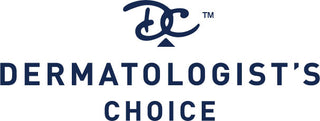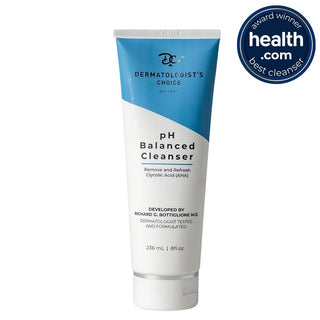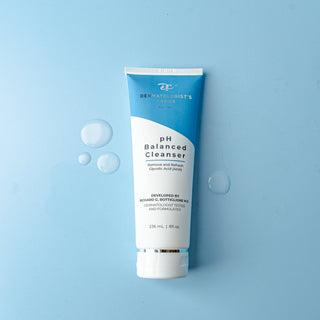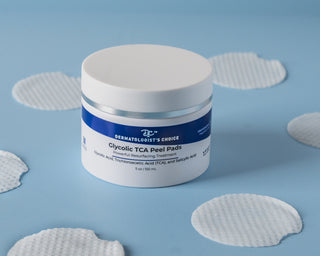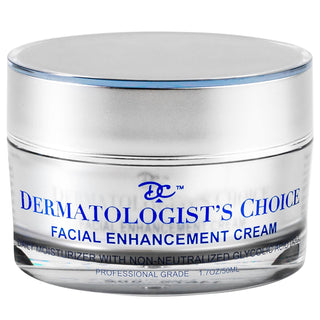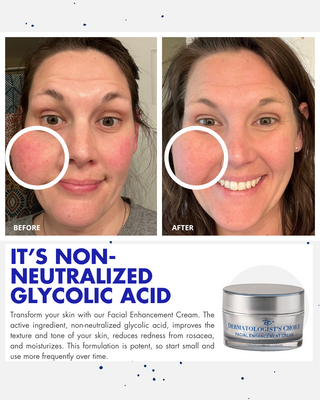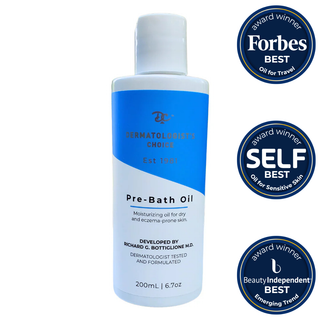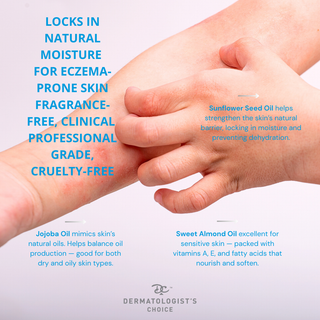
Facial exfoliation is an essential step in any comprehensive skincare routine. As a dermatologist with over 50 years of experience and the founder of Dermatologist's Choice Skincare, a line renowned for its medical-grade glycolic acid treatments, I’m here to guide you through the ins and outs of facial exfoliation.

Receive more of Dr. Bottiglione's skin tips from his 50 years of dermatology experience. Plus, receive 10% off your order. Sign Up Here
What Is Facial Exfoliation?
Facial exfoliation involves the removal of dead skin cells from the surface of your skin. This process helps to rejuvenate the skin, improve its texture, and promote a healthy, radiant complexion. By eliminating these dead cells, exfoliation allows your skin to breathe and better absorb skincare products.
What Are the Two Types of Exfoliation?
-
Mechanical (Physical) Exfoliation: This method uses physical tools or substances like scrubs, brushes, or exfoliating cloths to manually remove dead skin cells. It's particularly effective for those who prefer a hands-on approach to skincare.
-
Chemical Exfoliation: This technique employs chemical agents like alpha hydroxy acids (AHAs), beta hydroxy acids (BHAs), or enzymes to dissolve the bonds between dead skin cells, making it easier to shed them. Glycolic acid and TCA acid, are key ingredients in Dermatologist's Choice Skincare products, a popular and effective chemical exfoliant.
Benefits of Exfoliating Your Face
- Improves Skin Texture: Exfoliation smooths the skin’s surface, reducing rough patches and giving you a more refined texture.
- Enhances Skin Tone: Regular exfoliation helps to even out skin tone by reducing the appearance of dark spots and hyperpigmentation.
- Boosts Radiance: Removing dead skin cells reveals the fresher, more vibrant skin underneath.
- Prevents Breakouts: By clearing out clogged pores, exfoliation can help prevent acne and breakouts.
- Promotes Better Absorption: Post-exfoliation, your skin is more receptive to other skincare products, allowing serums and moisturizers to penetrate deeper and work more effectively.
What to Use to Exfoliate Your Face
- For Mechanical Exfoliation: Consider using gentle scrubs with fine granules or exfoliating brushes designed for facial use.
- For Chemical Exfoliation: Look for products containing AHAs like glycolic acid. TCA acid or BHAs like salicylic acid. Dermatologist's Choice offers a range of glycolic acid treatments that are both effective and gentle.
Best Way to Exfoliate Your Face by Skin Type
- Oily Skin: Chemical exfoliants containing TCA, glycolic acid, and salicylic acid are ideal as they can penetrate and clear out oily pores. The Glycolic Peel Cleansing Pads by Dermatologist's Choice are popular for those with acne and aging skin concerns.
- Dry Skin: AHAs like glycolic acid are effective because they help to hydrate while exfoliating. Start with a mild acid concentration like the Facial Enhancement Cream by Dermatologist's Choice. The cream reduces irritation.
- Sensitive Skin: Opt for mild exfoliants or products specifically formulated for sensitive skin to avoid irritation. I recommend Facial Enhancement Cream by Dermatologist's Choice.
- Combination Skin: A mix of both mechanical and chemical exfoliation tailored to the different areas of your face can be beneficial.
What to Do After Exfoliating Your Face
After exfoliating, it's crucial to:
- Hydrate: Use a gentle, hydrating moisturizer to restore moisture to your skin.
- Protect: Apply a broad-spectrum sunscreen, as exfoliated skin is more susceptible to UV damage.
How Often Should You Exfoliate Your Face?
The frequency of exfoliation depends on your skin type and the exfoliation method:
- Oily Skin: 2-4 times per week. You can work up to every day if needed.
- Dry/Sensitive Skin: Once a week.
- Normal/Combination Skin: 1-3 times per week.
Everyone's skin is different, this is a personal issue that you need to use trial and error to determine the best frequency for your skin and your desired results. The more you use it the more exfoliation and rejuvenation your skin will experience. On the other hand, your skin may be dry and red so you need to moisturize. Redness, tingling, and dryness is normal when using active non-neutralized glycolic and TCA acid. This is a sign the acid is working. If it's too strong apply moisturizer and reduce the amount used per week. Start with 1 application a week for three weeks to allow the skin to grow a tolerance. Remember to stay consistent as results come with continued use.
What Should You Do If Your Skin Reacts Negatively?
If your skin reacts negatively to exfoliation (redness, irritation, or burning):
- Reduce or Stop Exfoliating: Give your skin time to recover.
- Soothe: Apply a calming, fragrance-free moisturizer.
- Consult a Dermatologist: If symptoms persist, seek professional advice.
Are There Any Skin Conditions That Prevent Exfoliation?
Certain conditions, such as open cuts or wounds and irritated and sunburn skin, may make exfoliation unsuitable or require special care.
Exfoliation Tips and Best Practices
- Start Slow: If you’re new to exfoliation, begin with less frequent sessions to see how your skin reacts. Start once a week for three weeks.
- Be Gentle: Avoid harsh scrubbing to prevent micro-tears and irritation. It is best to use chemical exfoliators like acids as they are less irritating and more effective than physical exfoliators. Start with a mild acid like low concentration glycolic acid in the Facial Enhancement Cream by Dermatologist's Choice.
- Moisturize: Always follow up with a good moisturizer to protect and hydrate your skin.
How Can I Exfoliate My Skin Naturally?
Most if not all the acids such as Glycolic acid and TCA acid are naturally derived from natural items like sugar cane or vinegar. These are natural and clean ingredients for your skincare routine.
Do You Exfoliate with a Wet or Dry Face?
Generally, exfoliation should be done on dry skin when using acids. If skin is wet it can reduce the potency of the acid which reduces the effectiveness.
What Is the Best Exfoliator for Your Face at Home?
The best exfoliator depends on your skin type and preferences. Dermatologist's Choice offers a range of glycolic acid and TCA products that are perfect for at-home chemical exfoliation, providing professional results in the comfort of your home.
Exfoliation is a cornerstone of effective skincare, and understanding how to do it properly can make a significant difference in your skin’s health and appearance. With the right knowledge and products, you can achieve a radiant, smooth, and youthful complexion. For those seeking expert-grade results, Dermatologist's Choice Skincare offers a range of medical-grade glycolic acid treatments that cater to all skin types and needs.
To get started with the best of chemical exfoliators Dr. B recommends the Age Management Starter Set.
